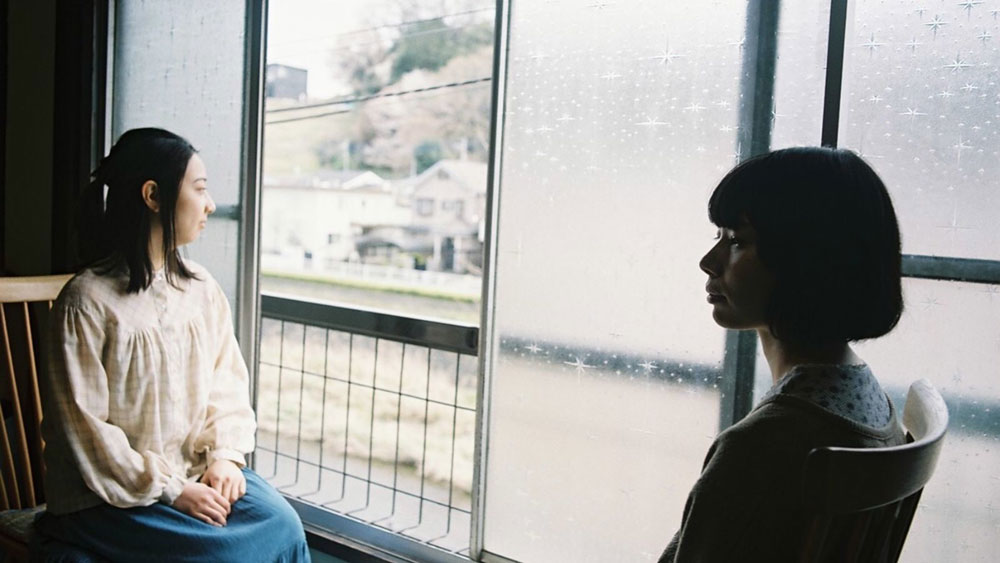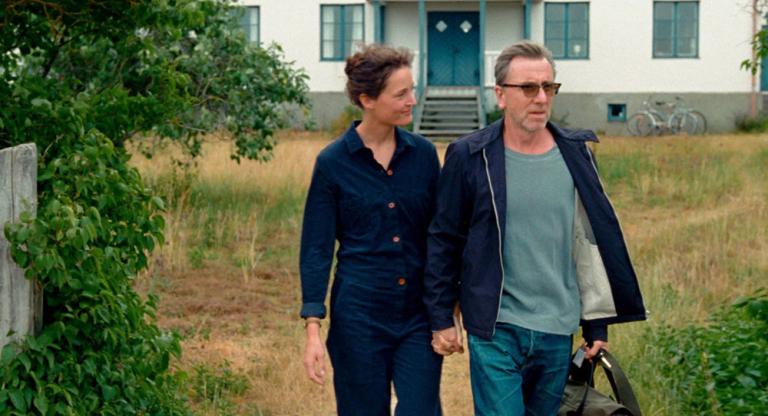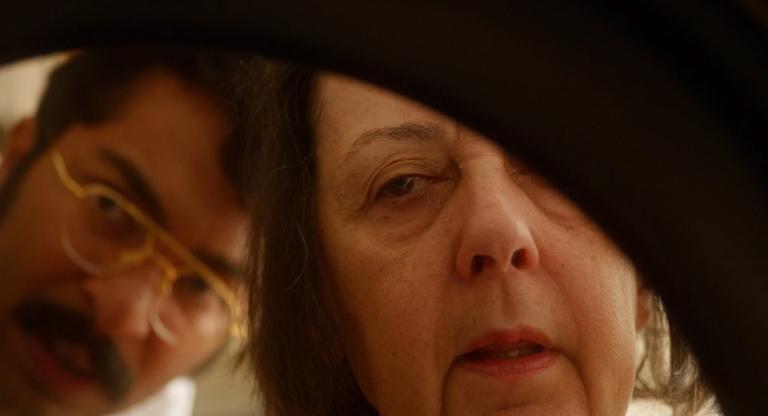The return of an in-person New York Film Festival is an exciting affair, though there can be no pretending it's September 2019: proof of vaccination, mask requirements, and the "enhanced cleaning and disinfecting" of theaters are the sorts of necessary precautions that are reminders of our changed world. Still, it's a bit of a shame that a film like Haruhara-san's Recorder (playing Tuesday and Wednesday in the festival's Currents section) cannot be appropriately enjoyed with a hot cup of Earl Grey from Indie [food and beverage are expressly forbidden –Ed.].
That is to say, director Kyoshi Sugita's cozy, contemplative film is best absorbed rather than meticulously analyzed. With little plot to speak of, the camera follows a young woman named Sachi (Chika Araki) after she has moved to a new apartment and started a new job at a nearby cafe. Outwardly, Sachi puts on a cheerful face, but there are small moments that suggest she is hiding a deeper pain; she sleeps in late, and her aunt and uncle stop by frequently, asking the sorts of gentle questions that one does when they're worried about someone but doesn’t want to let it on. Only a little information is explicitly revealed. Sugita's filmmaking instead rewards a patient viewer who might find his long takes of odd encounters and oblique conversations over coffee reminiscent of another festival favorite, Hong Sang-soo.
Such open-endedness means much of Haruhara-san's Recorder is left up to interpretation—a sort of tantalizing mystery that the film shares with its source material, a Japanese tanka by poet Naoko Higashi. The director has translated the 31-syllable poem as "Gazing upon / The Address Unknown stamp / The recorder / Played by Haruhara-san." But what, then, is the significance of Mr. Haruhara? Why has the sender's letter been returned? Is the recorder only an instrument, or could the word have another meaning? Sugita doesn't offer a firm answer, nor should you seek one; sometimes it is enough to simply be present.





